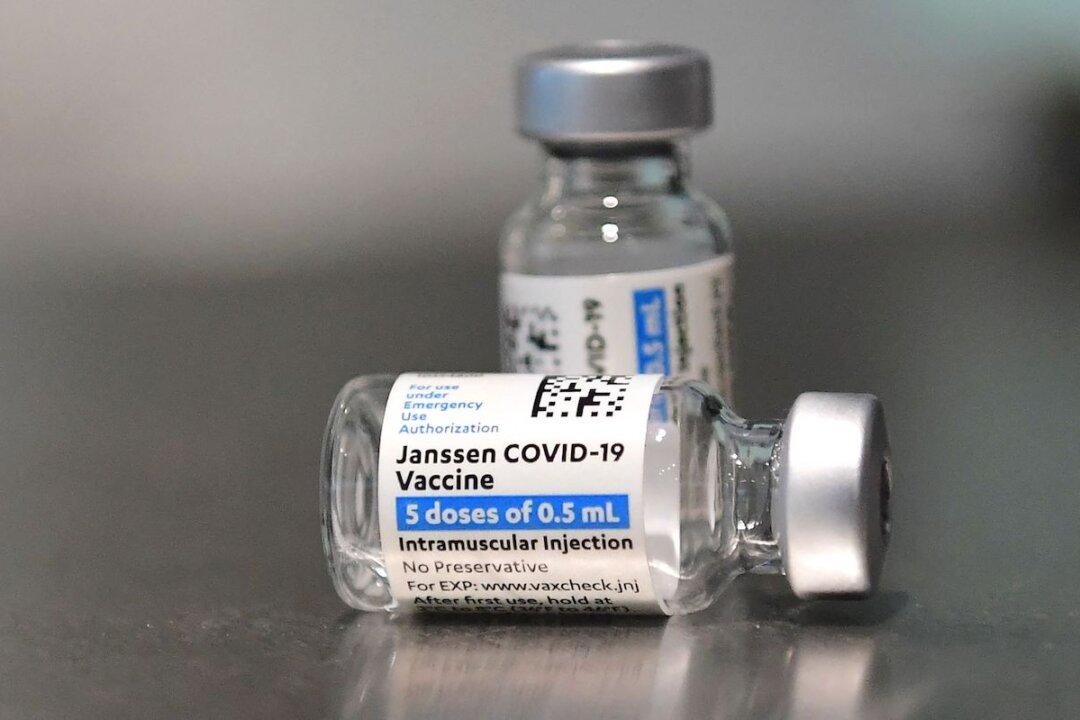The vaccine advisory panel to the Centers for Disease Control and Prevention (CDC) said on Thursday that the benefits of Johnson & Johnson’s COVID-19 vaccine still outweigh the risk of a serious, but rare, neurological disorder following vaccination.
The Advisory Committee on Immunization Practices met to discuss the incidence of Guillain-Barré syndrome (GBS) following a J&J shot and agreed that the vaccine should continue to be used in people 18 and older under the Food and Drug Administration’s (FDA) emergency use authorization, saying that the vaccine’s benefits far outweigh the risks.






